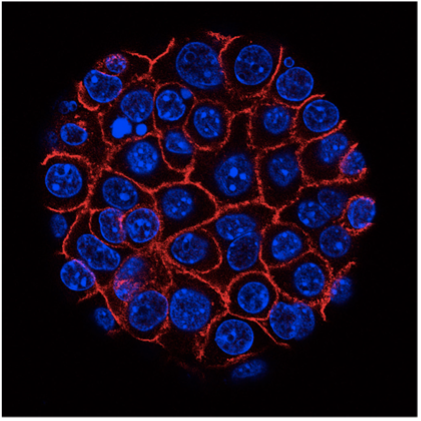Pancreatic cancers are notoriously resistant to treatment, in part because more than 90% of tumors are driven by mutations in the notorious KRAS gene. Once considered an “undruggable” cancer target, the first KRAS inhibitors are now making their way into clinics, but so far therapies have only been approved for the treatment of lung cancer. In the meantime, the best hope for stopping pancreatic cancer may be to inhibit the signaling pathways activated by mutant KRAS proteins, namely the KRAS–MAPK pathway, which controls cell growth and division.

But the other challenge in treating pancreatic cancer is that pancreatic cancer cells are highly adaptable, able to adjust their metabolism to use whichever nutrients are available in their environment. Given that a significant portion of pancreatic tumors develop resistance to KRAS-MAPK inhibition, the question has arisen: how do pancreatic cells adapt to this treatment?
Recently, a cross-country collaboration between two former Damon Runyon-Rachleff Innovators, Rushika Perera, PhD, of the University of California, San Francisco, and Joseph D. Mancias, MD, PhD, of Dana-Farber Cancer Institute, uncovered the answer. When the KRAS–MAPK pathway is suppressed in pancreatic cancer cells, those cells respond by breaking down ferritin, the protein that stores iron in cells. Since iron plays a crucial role in cellular respiration, or the process by which mitochondria generate energy, this release of iron boosts cellular metabolism, allowing the tumor to flourish even under therapeutic stress.
Excitingly, when the researchers disrupted this breakdown of iron (a process known as “ferritinophagy”) and inhibited the KRAS–MAPK pathway, they were finally able to stop the pancreatic cancer cells from growing. This suggests that a combined therapy may be the key to overcoming treatment resistance. Like squirrels in the winter, pancreatic cancer cells survive by storing food in unlikely places—but thanks to Dr. Perera and Dr. Mancias’ efforts, they now have one fewer hiding spot.
This research was published in Cancer Discovery.







